US won’t expel migrant children detained in Texas hotel
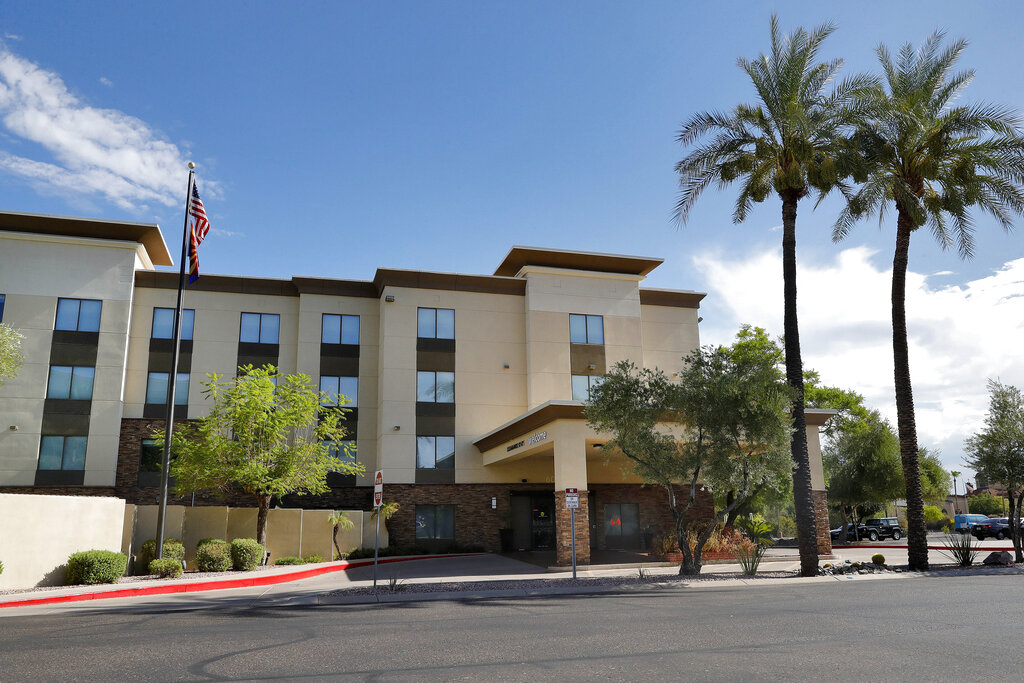
The Trump administration has agreed not to expel a group of immigrant children it detained in a Texas hotel under an emergency declaration citing the coronavirus and will instead allow them to seek to remain in the U.S., the administration said Monday. The move comes days after The Associated Press first reported on the U.S. government’s secretive practice of detaining unaccompanied children in hotels before rapidly deporting them during the virus pandemic. Government data obtained by AP showed the U.S. had detained children nearly 200 times over two months in three Hampton Inn & Suites hotels in Arizona and two Texas border cities. But the Trump administration has not said it will stop using hotels to detain children. The legal groups that sued Friday night said they still plan to fight the larger practice in court. Their agreement only covers 17 people known to have been detained as of Thursday at the Hampton Inn in McAllen. After the hotel’s owner said Friday it would end reservations of rooms used for child detention, U.S. Immigration and Customs Enforcement removed the children from the hotel but refused to say where it had taken them. Now, immigration authorities will transfer the children to shelters operated by the U.S. Department of Health and Human Services, where they will have access to lawyers and should eventually be placed with family sponsors as they pursue asylum cases or other immigration relief to try to remain in the country. The legal groups withdrew their request Sunday for a temporary restraining order. “The children in this hotel averted disaster only because we happened to hear about them before they were deported, yet hundreds if not thousands of other children are being sent back to harm in secret,” said Lee Gelernt, a lawyer for the American Civil Liberties Union. “The government must stop expelling children in secret without giving them asylum hearings.” Federal anti-trafficking laws and a two-decade-old court settlement that governs the treatment of migrant children normally require that most children be sent to shelters operated by HHS. The shelters are licensed by the states where they’re located and generally have bedrooms, recreation areas, and schooling. Instead, more than 2,000 children have been expelled since March, when the Centers for Disease Control and Prevention issued a declaration allowing immigration agencies to effectively shut down the asylum process out of concern about the spread of COVID-19. The AP found that contractors paid by U.S. Immigration and Customs Enforcement have held children as young as 1 in Hampton Inns. ICE called the contractors from MVM Inc. “transportation specialists” and refused to confirm whether they had passed FBI background checks or had backgrounds in child care. Instead, it said the contractors were “non-law enforcement staff members trained to work with minors and to ensure that all aspects of the transport or stay are compliant” with the court settlement known as the Flores agreement. An advocate with the Texas Civil Rights Project who walked through the Hampton Inn in McAllen on July 17 saw people in scrubs going room to room on the fourth and fifth floors of the hotel caring for children. The advocate, Roberto Lopez, said he saw one small child holding onto a gate in a doorway as an adult on the other side played with him. On Thursday, video posted by the project showed one of its lawyers trying to enter the fourth floor to find children. The video shows three men in plainclothes confronting him, then shoving him back and slamming him into an elevator wall. The records indicate the children were not accompanied by a parent but don’t say more about the circumstances of their crossing the border. In the past, some very young children have been brought by older siblings or other relatives. Others have been sent by parents waiting for their court dates in refugee camps on the U.S.-Mexico border with hopes they will be placed with relatives. A spokeswoman for Hilton, which owns the Hampton Inn brand, said franchisees owned all three Hampton Inns and the others in Phoenix and El Paso, Texas, would also stop child detention in its hotels. Hilton said in a statement that the company expected all of its franchisees “to reject business that would use a hotel in this way.” Andrea Ordin, a monitor appointed by the federal judge who oversees the Flores agreement, called on the U.S. government last week to stop detaining children in hotels, citing the lack of oversight and standards and the threat that children could suffer emotional and physical harm. The Trump administration responded by questioning Ordin’s authority to issue the report. Ordin’s report was “wholly outside the scope” of her responsibility, wrote Sarah Fabian, a U.S. government lawyer who was previously criticized for suggesting in court that the government may not have to provide children with toothbrushes in Border Patrol custody. Judge Dolly Gee, who oversees the Flores settlement, wrote Saturday that hotel detention does fall under the scope of Ordin’s duties. ___ This story has been corrected to show that the agreement only covers 17 people known to have been detained as of Thursday. Republished with the permission of the Associated Press.
Jeff Sessions calls for immigration moratorium until Americans return to work

Since mid-March, more than 22 million Americans have filed for unemployment. With that knowledge, former U.S. Attorney General and Alabama U.S. Senate-hopeful Jeff Sessions on Thursday called for a moratorium on employment-based immigration until the U.S. unemployment rate goes back down below 3.5%, where it was in February 2020. “American families and workers must come first. It is morally wrong and economically disastrous to import more foreign workers when millions of Americans are out of work through no fault of their own,” said Sessions. “Before the pandemic, our economy was booming with record low unemployment and wage growth. President Trump’s leadership has proved vital to restoring American economic strength. But the Chinese government’s dangerous and deceitful behavior has enabled the Wuhan Virus to explode worldwide and savage our health and our economy. 22 million Americans filing for unemployment equates to roughly 12 percent of the American labor force going without a paycheck.”In Alabama, more than 200,000 workers have claimed unemployment in the past few weeks. This number is continuing to grow,” Sessions added. “It is insanity for this nation to invite foreigners to come in and take any of the few jobs available during this crisis. Sessions explained the United States issues more than 1.4 million ‘temporary’ visas to foreign workers per year, not counting new green cards (permanent residents), refugees, illegal aliens, or those who illegally overstayed their visas from previous years. “Now is the time to suspend employment immigration so that we can make sure that jobs are available to the millions of Americans who have been displaced by this pandemic,” he concluded.
New study reveals immigration fails to benefit Alabama economy

The economic impact of immigrants entering the United States benefits Alabama very little, according to a recently released analysis from the personal-finance website WalletHub. With immigration reform remaining one of the biggest policy issues in 2020, WalletHub recently released its report on 2020’s Economic Impact of Immigration by State and found Alabama ranks 40th, out of 50 states, in terms of how much immigration benefits the state’s economy. In their study, WalletHub analysts compared the economic impact of foreign-born populations on the 50 states and the District of Columbia. They determined which states benefit the most — and least — from immigration using 23 key indicators across four key dimensions: 1) Immigrant Workforce, 2) Socioeconomic Contribution, 3) Brain Gain & Innovators and 4) International Students. Here’s how Alabama compares to the rest of the country: Source: WalletHub The top three states where immigrants had the greatest economic impact were New York, Connecticut and New Jersey. Meanwhile, Idaho, Wyoming and Mississippi had the very least benefit.
Number of arrests at Mexican border declines
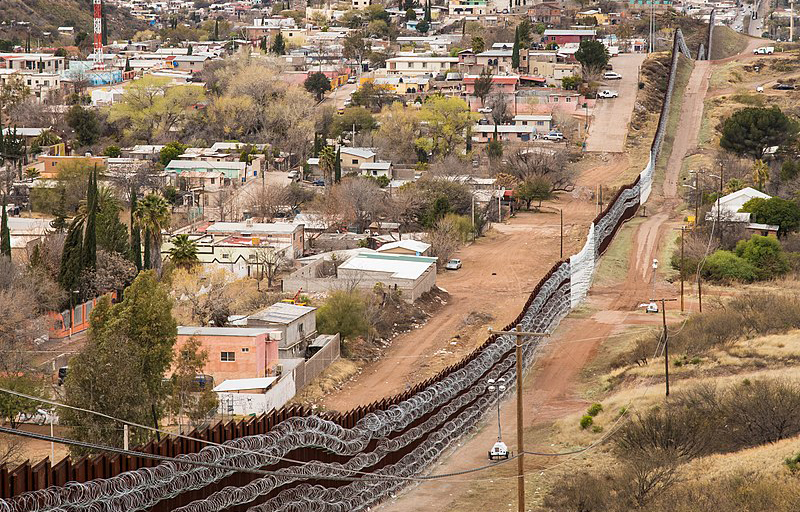
This is the seventh consecutive month of declines.
Construction of the US-Mexico Border Wall to Move Forward

This announcement follows a court ruling.
Border patrol’s growing presence at hospitals creates fear
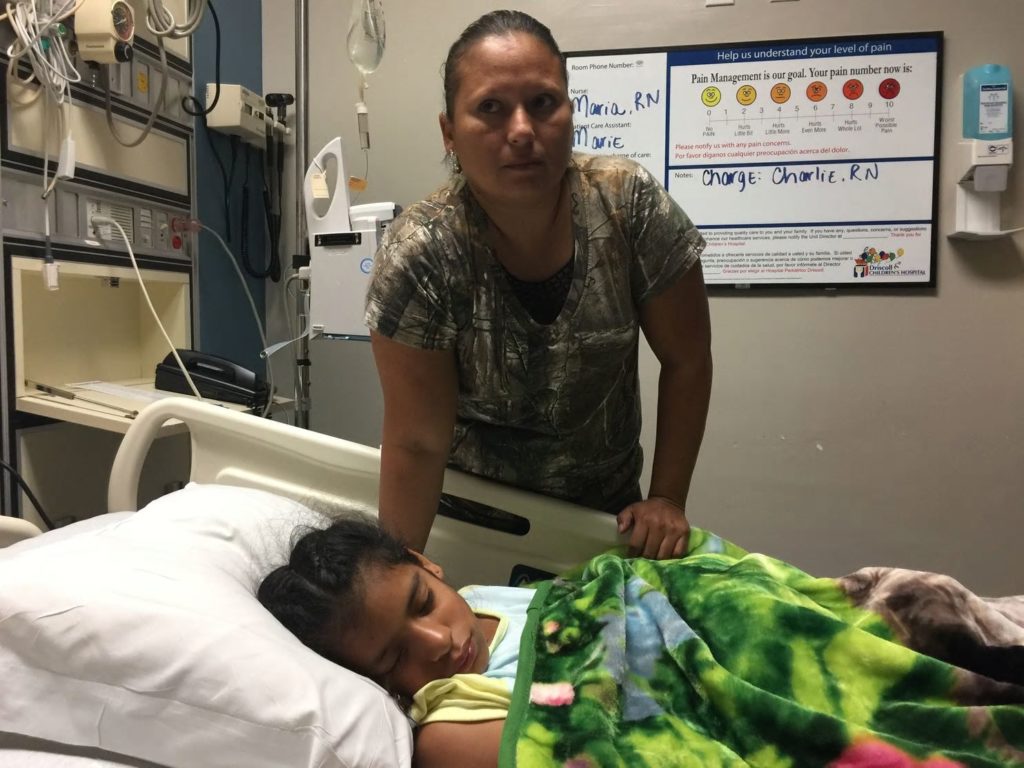
An armed Border Patrol agent roamed the hallways of an emergency room in Miami on a recent day as nurses wheeled stretchers and medical carts through the hospital and families waited for physicians to treat their loved ones. The agent in the olive-green uniform freely stepped in and out of the room where a woman was taken by ambulance after throwing up and fainting while being detained on an immigration violation, according to advocates who witnessed the scene. The presence of immigration authorities is becoming increasingly common at health care facilities around the country, and hospitals are struggling with where to draw the line to protect patients’ rights amid rising immigration enforcement in the Trump administration. Some doctors say this increased presence could undermine public health in cities with large immigrant populations, frightening patients who need care and prompting them to avoid hospitals. Normally, Immigration and Customs Enforcement officers and Border Patrol agents enter hospitals when detainees require emergency medical services or specialized care. In many cases, agents escort sick immigrants to the hospital after apprehending them at the border. In some instances, they have detained them after leaving a hospital. In 2017, Border Patrol agents followed a 10-year-old immigrant with cerebral palsy to a Texas hospital and took her into custody after the surgery. She had been brought to the U.S. from Mexico when she was a toddler. Doctors, lawyers and family members have complained about immigrants being shackled in hospitals and the intrusive presence of uniformed agents in exam rooms during treatment and discussions with physicians about medical care. The American Medical Association Journal of Ethics devoted its entire January issue to medical care for immigrants who are in the country illegally, including a discussion of whether medical facilities should declare themselves “sanctuary hospitals,” similar to sanctuary cities. “Our patients should not fear that entering a hospital will result in arrests or deportation. In medical facilities, patients and families should be focused on recovery and their health, not the ramifications of their immigration status,” the association said in a statement. But Dr. Elisabeth Poorman, a primary care physician at the University of Washington in Seattle, says facilities need to constantly train staff on how to interact with law enforcement and immigrant patients in these situations. “The ground is constantly shifting. I can tell the patient I am committed to your safety, but in the current administration we cannot tell everyone that they are 100% safe,” she said. Earlier this year, the agency that oversees Border Patrol said its agents averaged 69 trips to the hospital each day across the country. In the first half of the year, the federal government said Border Patrol agents had spent about 153,000 hours monitoring detained people at hospitals, as more families and children were crossing the border from Mexico. That’s the equivalent of about 20,000 8-hour shifts spent at hospitals. Hospitals, schools and places of worship are considered “sensitive locations” by a government policy and are generally free from immigration enforcement. But the rule is discretionary and ambiguous when an enforcement action begins before a trip to a hospital or when an immigrant is already in custody. Thomas Kennedy, policy director of the Florida Immigrant Coalition, says his organization received a call on Sunday alerting them of the detention and hospitalization of a woman in the suburb of Aventura. The woman’s identity was not disclosed by the group, saying the family asked for privacy. The woman and her ex-husband were driving with their two children, who are U.S. citizens, after a day at Haulover Beach on Sunday when a Border Patrol car flashed its lights to pull them over. Border Patrol conducts operations within 100 miles (160 kilometers) of a U.S. land or coastal border, and Florida lies entirely within this zone. Kennedy said the agents told her she had to go with them, and shortly after, she threw up and fainted. The agents then called for an ambulance. Keith Smith, a spokesman for the U.S. Customs and Border Protection agency, said the woman was detained for being “illegally present” in the United States, and clarified Border Patrol does not conduct any enforcement operations in hospitals in Florida. “However, agents will transport persons in custody and remain with them until medically treated and cleared,” he said in an email. Smith added agents were following national standards when escorting the woman to the hospital. In what Kennedy says is a recorded exchange between him and the Border Patrol agent with their faces off camera, Kennedy is heard asking the agent to show a warrant. The agent’s response: I don’t need one. “It is a little unorthodox to have a Border Patrol officer outside of her room and going in and out while she is receiving medical treatment,” Kennedy said. “This type of stuff creates fear. It prevents undocumented immigrants from seeking care.” Kennedy said he confronted the staff at Aventura Hospital and Medical Care, but employees told him they didn’t want to get involved and were simply providing care. The hospital, which is part of the Nashville-based health care giant HCA, Inc., did not respond to questions regarding cooperation with immigration authorities. The immigration agency said its agents must document the hospitalization providing a discharge summary, treatment plans and prescribed medications from any medical evaluation. Health care lawyers and medical associations say providers generally should not allow law enforcement unrestricted access to treatment areas, to comply with the federal Health Insurance Portability and Accountability Act, known as HIPAA. The law protects against improper disclosure of confidential information that may result from offering such access. A spokesman for NYC Health and Hospitals, which operates the public hospitals and clinics, said that when patients show up in custody of immigration enforcement, officers would be posted outside the treatment room, the same way it happens with police officers. But hospitals have yet to come up with a universal set of policies on how medical staff and physicians interact with immigration authorities. Dr. Poorman said she
Donald Trump puts his stamp on nation’s immigration courts
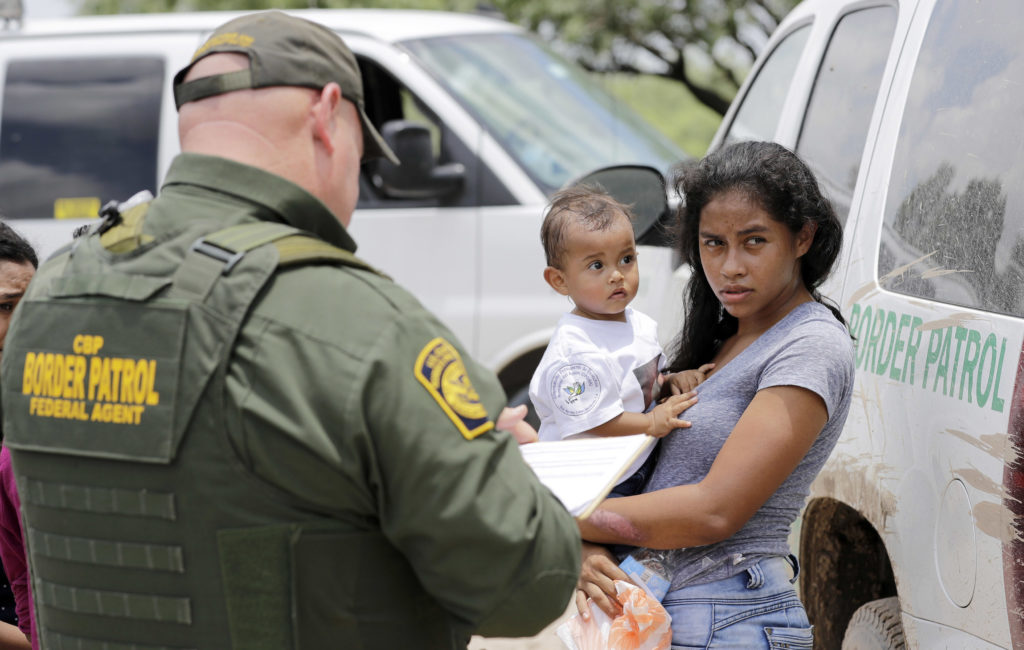
In just 2½ years, the Trump administration has put its stamp on the nation’s immigration court system, appointing more than 4 in 10 judges while dramatically expanding the bench and issuing new rules that make it harder for migrants to win their cases and stay in the country. An Associated Press analysis shows that President Donald Trump’s administration has appointed at least 190 immigration judges, accounting for 43 percent of the total. The hires helped expand the immigration bench by more than 100 since September 2016; by comparison, President Barack Obama had a net gain of fewer than 50 judges from 2010 to 2016. The AP analysis also found that Trump has continued a trend from past administrations in hiring large numbers of former military lawyers and Immigration and Customs Enforcement attorneys as judges. Nearly 1 in 5 sitting judges appointed under Trump was a military lawyer, and half previously worked for ICE. The administration has ramped up staffing in a bid to reduce enormous delays in the overwhelmed immigration court system, which has nearly 900,000 cases. Immigrants seeking to stay in the country often wait years for a hearing, let alone a decision. Critics say Trump’s selections are no coincidence at a time when the president is trying hard to curtail immigration, especially for the tens of thousands of Central Americans arriving at the border in hopes of winning asylum. “My thinking is they want to bring in people who they think have the professional experience that will lead them to interpret the law in the way the attorney general wants it to be interpreted, which is, basically, Central American domestic violence and gang claims are not valid asylum claims,” said Jeffrey Chase, a former immigration judge. Immigration judges — who are employed by the Justice Department, not the judicial branch — make critical decisions about who gets asylum and green cards to stay in the United States and who must return to their home countries, shaping the lives of immigrants and their families and the fate of Trump’s crackdown. The judges have been taking a harder line under Trump than in the previous administration, denying 65 percent of asylum cases during the 2018 fiscal year, compared with 55 percent two years earlier, according to data from the Transactional Records Access Clearinghouse at Syracuse University. Last year, then-Attorney General Jeff Sessions issued guidance narrowing the scope of asylum claims, though it was later blocked by a judge. Other new rules set performance targets for judges and bar them from shelving cases. The number of immigration judges stood at 444 in April, according to records provided by the Executive Office for Immigration Review, which runs the courts. And the hiring is expected to continue. The administration wants to add 100 in the next fiscal year, said Kathryn Mattingly, a spokeswoman for the office. The latest additions include a Navy-deep sea diver who worked more than a decade as a military attorney, a Los Angeles prosecutor who tried federal drug cases and held posts in Nigeria and Pakistan, and an attorney who worked more than two decades for ICE.Tapping military lawyers and immigration trial attorneys for these positions isn’t a new phenomenon. Of those appointed during the Obama administration who remain on the bench, about 13 percent have military law experience and more than half worked for ICE, the AP’s analysis shows. Mattingly said the system’s judges are hired through an open, merit-based process, and she rejected “insinuations that its judges lack integrity or competence based on the clients they may have represented prior to becoming judges.” Judge A. Ashley Tabaddor, who heads the immigration judges’ union, said the group welcomes new hires to help with the massive dockets but worries they will feel more pressured by case quotas set by the courts. On computer screens, color-coded graphics constantly remind judges of how close they are to meeting or missing performance targets.“We are now seeing a super majority with prosecutorial or military background experience,” said Tabaddor, whose group has long called for more diverse hires and wants the courts to become independent of the Justice Department. “Any court that wants to have the integrity and respect of the community needs to reflect the demographics of the community.”Immigrant advocates have long pressed for more judges. Some have joined with the judges’ union in calling for independent immigration courts to reduce the administration’s influence. Former Rep. Robert Goodlatte, a Republican who was chairman of the House Judiciary Committee, said more judges have long been needed to keep up with the surge in asylum cases. But the hires, he said, are only part of the solution so long as large numbers of migrants continue to arrive on the southern border. “As long as those numbers are still exploding, even with the addition of the judges, they’ll still be bailing water, if you will,” said Goodlatte, himself a former immigration attorney.Some immigration lawyers said they found the new judges to be more thoughtful than those who have managed the dockets for years. Others said they worry that less-experienced judges with military or government background are more likely to defer to federal authorities in their rulings. Some critics have accused the Trump administration of letting politics affect hiring decisions. Heidi Burakiewicz, a Washington employment lawyer, said she represents four candidates for immigration judge and appeals board jobs who received offers during the Obama administration and saw them rescinded after Trump took office. In Los Angeles, more than a dozen immigration judges have been added by the Trump administration, including Leon Francis, who worked for decades in the military as an attorney and judge. Recently, Francis heard a Guatemalan woman recount how she came to the U.S. with her partner and year-old daughter after gang members tried to extort money from them at their grocery store. The partner was shot a month later, she said. Francis asked why the couple didn’t report the threat to police or prosecutors. After a 50-minute recess, he turned down the
US opens new mass facility in Texas for migrant children
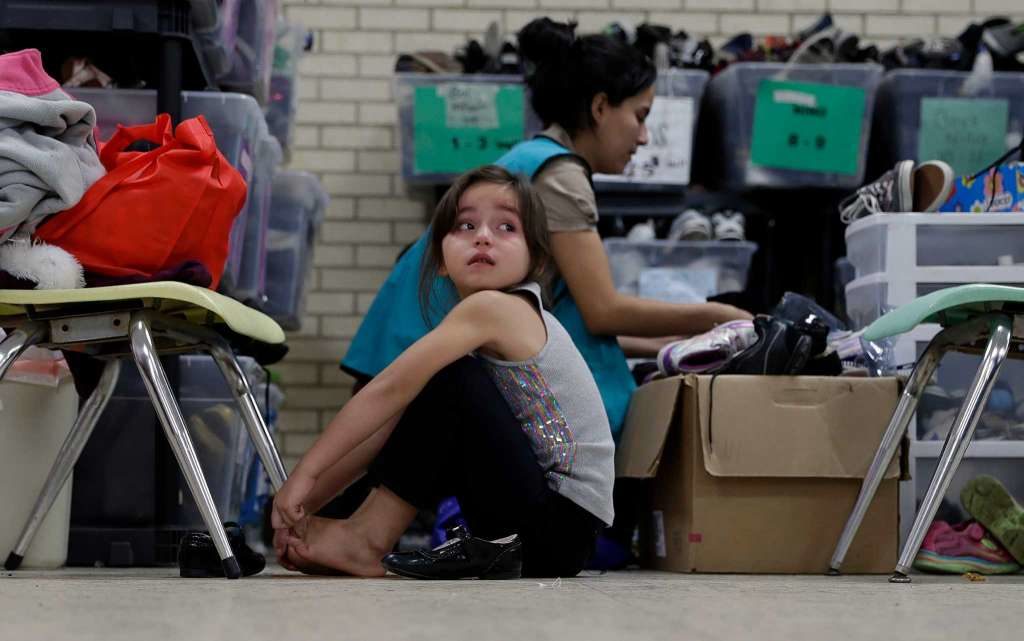
The federal government is opening a new mass facility to hold migrant children in Texas and considering detaining hundreds more youths on three military bases around the country, adding up to 3,000 new beds to the already overtaxed system. The new emergency facility in Carrizo Springs, Texas, will hold as many as 1,600 teens in a complex that once housed oil field workers on government-leased land near the border, said Mark Weber, a spokesman for Office of Refugee Resettlement. The agency is also weighing using Army and Air Force bases in Georgia, Montana and Oklahoma to house an additional 1,400 kids in the coming weeks, amid the influx of children traveling to the U.S. alone. Most of the children crossed the border without their parents, escaping violence and corruption in Central America, and are held in government custody while authorities determine if they can be released to relatives or family friends.All the new facilities will be considered temporary emergency shelters, so they won’t be subject to state child welfare licensing requirements, Weber said. In January, the government shut down an unlicensed detention camp in the Texas desert under political pressure, and another unlicensed facility called Homestead remains in operation in the Miami suburbs. “It is our legal requirement to take care of these children so that they are not in Border Patrol facilities,” Weber said. “They will have the services that ORR always provides, which is food, shelter and water.” Under fire for the death of two children who went through the agency’s network of shelters and facing lawsuits over the treatment of teens in its care, the agency says it must set up new facilities to accommodate new arrivals or risk running out of beds. The announcement of the program’s expansion follows the government’s decision to scale back or cut paying for recreation, English-language courses and legal services for the more than 13,200 migrant toddlers, school-age children and teens in its custody. The Health and Human Services Department, which oversees the refugee office, notified shelters around the country last week that it was not going to reimburse them for teachers’ pay, legal services or recreational equipment, saying budget cuts were needed as record numbers of unaccompanied children arrive at the border, largely from Guatemala, Honduras and El Salvador. In May, border agents apprehended 11,507 children traveling alone. Attorneys said the move violates a legal settlement known as the Flores Agreement that requires the government to provide education and recreational activities to migrant children in its care. Last week, attorneys filed a motion claiming that the government also was violating the decades-old settlement by keeping kids at Homestead for months in some cases, instead of releasing them within 20 days. “If they are going to open the program up in these numbers and they can’t even manage the influx facility that they have in a humane way, then compounding that is going to be disastrous,” said Holly Cooper, an attorney at the Immigration Law Clinic at University of California, Davis who represents detained youth. Advocates have slammed the move as punitive, saying such services are typically available to adult prisoners. “ORR’s cancelling of these services will inflict further harm on children, many of whom continue to languish for months without being placed safely and expeditiously into a sponsor’s care. That is not only unacceptable, it could be in violation of the law,” said Rep. Rosa DeLauro, a Connecticut Democrat who chairs the House Appropriations subcommittee with oversight on the agency’s budget. Republished with permission of the Associated Press.
Mo Brooks blasts Socialist Democrats’ open border policies for helping kill Americans
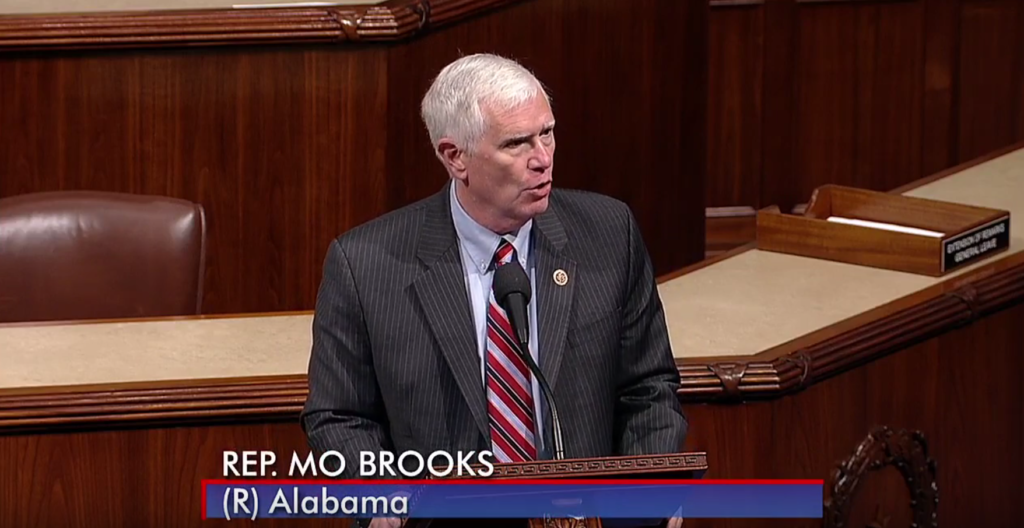
Alabama 5th District U.S. Rep. Mo Brooks isn’t holding back — in a fiery floor speech in front of his House colleagues, he blasted Socialist Democrats’ open borders policies “that help to kill 33,000 Americans each year.” “The President’s legal authority to declare a national emergency under the National Emergencies Act of 1976 and build a wall on the southern border under 10 United States Code 2808 (and numerous other statutes) is crystal clear. Open-borders Socialists Democrats who brought this resolution to the House floor don’t have a legal leg to stand on,” Brooks said on Tuesday. “I trust President Trump will veto this resolution if it makes it to his desk, and I will vote in the House to sustain President Trump’s veto if given the opportunity.” He continued, “Protecting American lives from illegal alien homicides and deaths from overdoses on poisonous drug trafficked across America’s porous southern border should be a bipartisan issue… It is tragic Socialist Democrats don’t care for American lives as much as President Trump does. The hatred and hostility Socialist Democrats harbor for President Trump, who is trying to protect American lives, is beyond the pale.” Brooks purports America’s porous southern border is responsible for nearly 33,000 deaths a year. “By any measure, a national emergency exists at America’s porous southern border. According to Immigration and Customs Enforcement data, roughly 2,000 illegal aliens are apprehended each year by federal agents for homicides committed on American soil,” Brooks explained. “Worse yet, National Institutes of Health data reveals that roughly 31,000 Americans die each year from heroin and cocaine overdoses, 90% of which floods across our porous southern border. On average, at least 50 Americans die each day from illegal alien homicides or overdoses on poisonous drugs shipped through our porous southern border.” On Tuesday the House will vote on a resolution to block President Donald Trump’s declaration of a national emergency on the U.S.-Mexico border. The resolution will undoubtedly pass the House with Democrats in control of the chamber, and may garner enough votes of support in the Senate to pass as well, which could result in Trump’s first veto. Earlier this month Trump declared a national emergency along the border in order to fund his long-sought wall along the U.S-Mexico border. Watch Brooks’ speech below: The full text of Brooks’ speech follows: Mr. Speaker, in FY 2018, more than 2,000 illegal aliens were apprehended by federal agents for homicides committed on American soil. [1] Worse yet, roughly 31,000 Americans die each year from heroin and cocaine overdoses, [2] 90% of which floods across America’s porous southern border. [3] Hence, we can expect at least 33,000 dead Americans each year until America secures our porous southern border. For perspective, the 9/11 terrorist attacks killed roughly 3,000 people. In response, America invaded Iraq and Afghanistan at a cost trillions of dollars and roughly seven thousand lost military personnel lives! Saving Americans should be a bipartisan issue. Yet, here we are. Republicans seek to prevent another 33,000 dead Americans this year while partisan Democrats seek to embarrass and stop President Trump from securing America’s porous southern border and saving American lives. For emphasis, no, no national emergency in history has been prompted by more dead Americans than President Trump’s national emergency declaration. As such, I support President Trump’s national emergency declaration and will vote accordingly. Mr. Speaker, how many dead Americans does it take for open border advocates to support border security? How much American blood must be on guilty hands before Congress recognizes the national emergency we face at America’s southern border? America’s military protects the borders of, and lives in, South Korea, Iraq, Syria, Afghanistan, Europe, and many other countries. I thank President Trump, as commander-in chief, for understanding that America, and Americans, deserve no less protection! Mr. Speaker, let me conclude by noting that dead Americans, Americans killed by illegal aliens and as a consequence of porous borders, had dreams too! And, we as a Congress, should remember and honor those dreams and act accordingly, and protect this national emergency to protect American lives by securing our porous southern border. Mr. Speaker, I yield back.
Bradley Byrne: An immigration crossroads

Growing up, my parents taught me the basic values of fairness and following the rules. I think these values were common in households all across our state and country. In today’s society, those two basic values need to be applied to the ongoing debate about illegal immigration. In terms of fairness, we have people who are going through the legal process to enter our country, which takes time and effort, only to have people skip that entire process and just walk across our border illegally. That goes against the basic value of fairness. Also, we are a nation built on laws, but currently illegal immigrants openly disregard the rules and laws of our country. By not holding them accountable, we are further encouraging a culture where the rule of law does not matter. Currently, we find ourselves at a crossroads as a nation. Down one path is the status quo of broken immigration policy, porous borders, and a steady flow of drugs, violence, and human trafficking across the southern border. Down another path is what Democrats advocate for: open borders, limited funding for national security measures at the border, and disregard for the rule of law. But, down the final path is strong border security, including increased funding for a border wall, cracking down on criminal aliens in the United States, and reforming our broken immigration system in a way that works for American citizens, not for foreign interests. Unfortunately, the Democrat leadership in Washington is pulling the nation down the path to the left, the path that threatens our national security. Because of this, the President was recently left with no choice but to declare a national emergency to secure the funds necessary to adequately secure our border. As much as I wish that it had not come to this point, I stand with President Donald Trump on this action to get a handle on our immigration crisis. If the Democrats in control in Congress will not act in the best interest of the American people, then it is up to the President to take the necessary steps to keep our nation safe. I have heard from countless people throughout Alabama that they are worried about the influx of drugs and violent crime across our Southern border due to illegal immigration. We see story after story each week of criminals arrested by the dozen trying to enter our country illegally, murders committed by illegal immigrants who are members of violent gangs, and the myriad of deaths caused by overdose from drugs originating in Central and South America. This must stop. Once we can get a handle on the countless illegal crossings each week, we can move to reforming our broken system, combatting sanctuary cities, and encouraging people down legal paths to citizenship. For the officer killed in California at the hands of an illegal immigrant, I will fight this fight. For the three Americas killed in Missouri by an illegal immigrant released without the knowledge of ICE, I will fight this fight. For the young woman raped by a previously-deported illegal immigrant in Shelby County, I will fight this fight. For the people of Alabama, and for the people of the United States, I will remain committed to seeing this fight through to the end to secure our borders. We need to return the commonsense, family values of fairness and following the rules to the immigration debate. By doing that, we can take our nation down the path toward secured borders, safer communities, and a more prosperous nation. • • • Bradley Byrne is a member of U.S. Congress representing Alabama’s 1st Congressional District.
Poll: Immigration among the top concerns in 2019
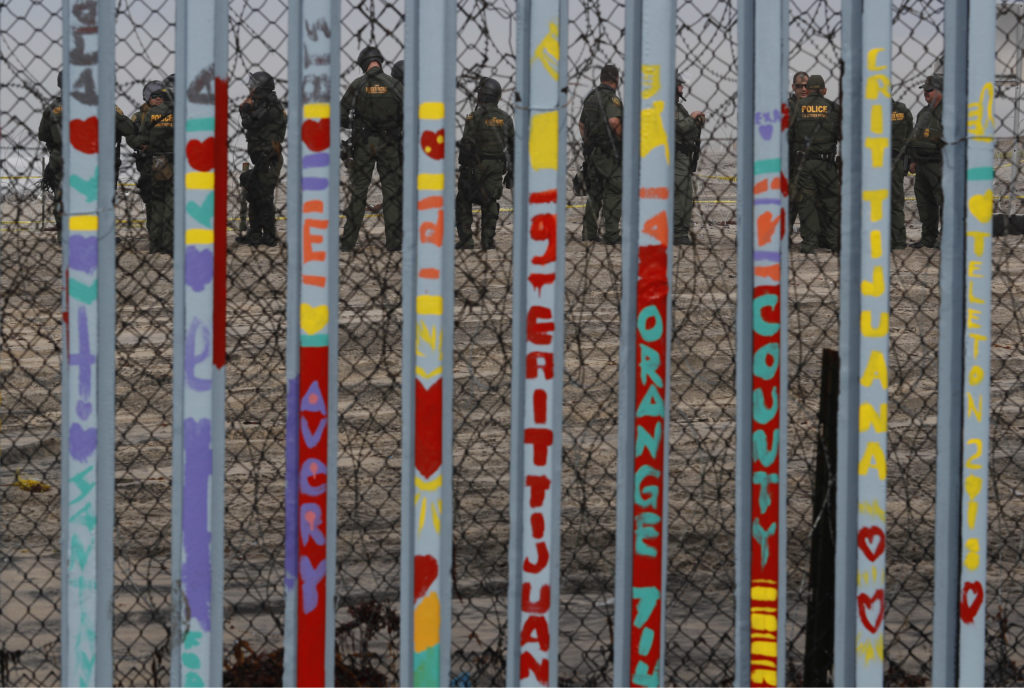
As much of the U.S. government remains shut down over President Donald Trump’s insistence on funding for his border wall, nearly half of Americans identify immigration as a top issue for the government to work on this year. An Associated Press-NORC Center for Public Affairs Research poll conducted shortly before the shutdown began finds that both Republicans and Democrats are far more likely to include immigration in their list of top issues facing the country this year compared with a year ago. Overall, 49 percent mentioned immigration in an open-ended question as one of the top five problems they hoped the government addresses in 2019. By contrast, 27 percent mentioned immigration in December 2017. Partisan divides on the best solutions remain deep. Republicans continue to be more likely to cite immigration as a top issue than Democrats, an indication of the GOP’s greater intensity on the issue. But it’s an increasingly important issue to members of both parties. The poll found that 65 percent of Republicans say immigration is one of the top five problems facing the country, up from 42 percent in 2017. Among Democrats, 37 percent cite immigration as a top issue, compared with just 2 in 10 a year ago. Roughly two-thirds of those who named immigration as a top priority express little confidence in the government to make progress this year, including a third who say they are “not at all” confident. About a third say they are at least moderately confident in the government to make progress on immigration. This follows a year of intermittent deadlocked negotiations and standoffs between Trump and Democrats in Congress. Although both Democrats and Republicans are increasingly likely to name immigration-related issues as top priorities for the government, other polls show that their opinions on the issue diverge dramatically. For example, a December poll by CNN found that 78 percent of Republicans and just 8 percent of Democrats supported building a border wall. And with their party still in control of the White House and the Senate, Republicans are more optimistic about the government making progress on immigration this year. Among those who prioritize immigration, Republicans are more than three times as likely as Democrats to express some confidence that the government will make progress. That includes David Hoyt, a 77-year-old retired school superintendent and registered Republican in eastern Iowa. “We waste too many resources with illegal aliens,” Hoyt said. “If people want to come here, let’s have them do it legally. I don’t understand why people don’t understand the word ‘illegal.’” Hoyt says he’s also focused on the economy, and its healthy state is why he’s satisfied with the country’s direction and Trump’s performance. “People are busy,” Hoyt said. “I can tell the economy from the number of semis on the highway, and it’s loaded.” Chris Butino, 31, is a Democrat and a firefighter in Cortland, New York, who’s been disappointed by Trump’s rhetoric and actions on immigration, especially against refugees. Trump has sharply curtailed the number of refugees accepted by the U.S. and taken steps to limit who can claim asylum as more migrants from Central America try to do so at the Mexican border. “We’re America — we’re the wealthiest nation in the world in terms of resources, and saying we’re not going to take in the poor, huddled masses,” Butino said. “We can maintain our own safety, but we can also be generous.” The economy remains a top priority for Americans, with 62 percent citing related issues, including mentions of jobs, unemployment, taxes and trade. Nearly half of Americans also identify health care as one of the top five issues facing the country, unchanged from one year ago. A traditionally Democratic issue, health care is named by Democrats more than Republicans (56 percent versus 43 percent). There was a sharp rise in environmental and climate issues after a year of wildfires and hurricanes, a change that is largely driven by Democrats. Overall, about a quarter of Americans mention the environment as a top issue. About 4 in 10 Democrats include the environment as a priority, compared with just 8 percent of Republicans. The share of Democrats naming the environment has grown 11 percentage points since a year ago. The poll was conducted in December before the stock market gyrations and government shutdown. Gil Parks, a retired CPA who’s become a rancher in Texas, is fine with the shutdown. “It’s only 25 percent of the government,” he said. Parks, a 59-year-old Republican, is optimistic the country could be in for a long stretch of economic growth, in part because of the partisan acrimony fueling the shutdown. “If you look back in history, the economy did best when government couldn’t get in the way,” he said. With Democrats assuming control of the House of Representatives, the inevitable gridlock could preserve the economic expansion, Parks argued. Republicans are more likely than Democrats to be optimistic, but feelings about the country are mixed even within the GOP. Six in 10 Americans are dissatisfied with the way things are going in the country as a whole, including 79 percent of Democrats and 42 percent of Republicans. Among Republicans, that’s a slight increase from 33 percent who were dissatisfied with the state of the country in October. Still, Republicans are far more likely than Democrats today to say they’re satisfied with the way things are going in the country, 39 percent to 9 percent. The unhappiness on both sides of the aisle is palpable to John Rossetti, a 47-year-old code enforcement officer in Youngstown, Ohio. “There’s a really different, negative environment,” Rossetti said. “Everywhere you go, it’s there — just a very negative atmosphere.” Rossetti describes himself as a moderate to conservative Democrat who didn’t support Trump in 2016 but was rooting for him to succeed. Now he’s disillusioned and pessimistic about the future, and he’s not alone. Americans are more likely to think things in the country will get worse in the next year than that they will get better,
Martha Roby: Border security is a priority for Alabamians

As a member of the House Appropriations Committee, one of my jobs is to work alongside my colleagues to see that the government is funded on time each year. It’s no secret that the process is far from perfect and Congress often falls short of executing this important responsibility in the way our founding fathers intended, but this year, I am glad to report that we have taken steps in the right direction. As you may know, current government funding expires on December 7, and as of now, we have already funded 75 percent of the government under regular order. We have done our job to fund our military and the Department of Veterans Affairs on time, and now it is imperative that we build upon this positive momentum by properly funding the rest, including the Department of Homeland Security, in order to crack down on our country’s illegal immigration problem. I’m sure you have seen the recent news reports about the caravan of individuals trying to force their way across our southern border. This situation is deeply troubling, and it is a direct threat to our national security. The unfortunate truth, however, is that this isn’t the first time something like this has occurred, and until we truly secure our border, it won’t be the last. Let me be clear: Our immigration system is broken, and it badly needs to be reformed. But, any real, meaningful discussions about reforms to the existing system absolutely must begin with securing the border. As I always say, if you have a leak in your house, you don’t replace the drywall until you fix the leak. In the same way, we cannot attempt to solve the larger problem with our immigration system until we stop the flow of illegal immigrants across our border. That’s why it is critical that Congress fully fund the Department of Homeland Security, which oversees border security and immigration, to provide the resources and tools necessary to secure the border, including President Trump’s request for a border wall. Last year, we put a down payment on construction of a wall along our southern border, and this year, it is our responsibility to direct additional funds towards this important measure and others. With my seat on the House Appropriations Committee, I’m in a strong position to ensure that many of our Alabama priorities are properly funded from year to year. Border security is one of those priorities, and I am eager to get this important work done. ••• Martha Roby represents Alabama’s Second Congressional District. She lives in Montgomery, Alabama, with her husband Riley and their two children.

